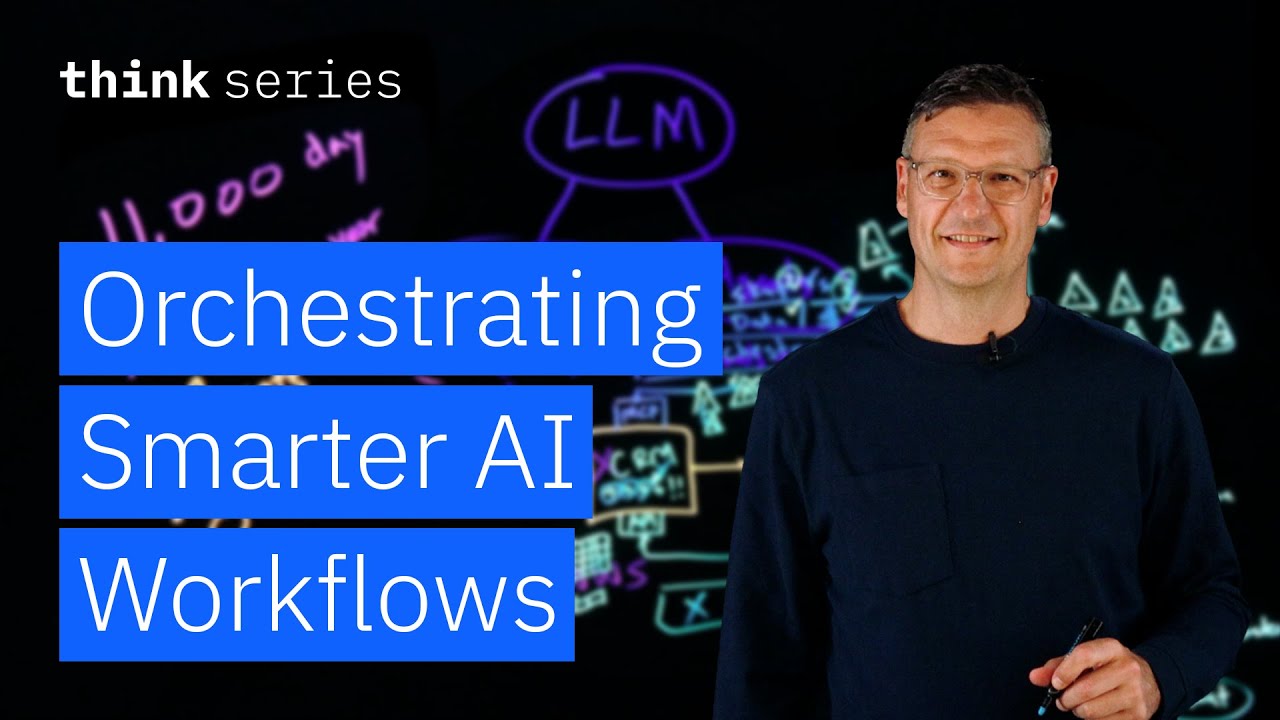The video explains how AI agents, enhanced by large language models, enable dynamic and autonomous orchestration of complex workflows, surpassing traditional robotic process automation by allowing modular, goal-driven collaboration among specialized agents. This paradigm shift leverages familiar software engineering principles to automate multi-step business processes more effectively, freeing human teams to focus on higher-value tasks.
The video discusses the rapid growth of AI agents, with an estimated 11,000 new agents being created daily, potentially surpassing a million within the year. It highlights that many IT professionals will likely engage in projects involving AI agents or orchestration platforms to manage complex workflows. The presenter reassures developers that orchestrating workflows with AI agents builds upon familiar frameworks and tools, making it accessible for those with software engineering experience. The integration of large language models (LLMs), such as GPT, introduces advanced language understanding capabilities that enhance automation by enabling more sophisticated logic in business processes.
A key distinction is made between AI assistants and agents. Assistants operate on a prompt-response basis, waiting for user input before providing answers. In contrast, agents are goal-driven and autonomous within defined boundaries, capable of taking actions without explicit prompts. This agency allows agents to pursue outcomes based on goals, making them more proactive and versatile in handling tasks. The video emphasizes that despite the buzz around various types of language models, the development of agents remains grounded in solid software engineering principles, encouraging developers to leverage their existing skills.
The video then contrasts traditional robotic process automation (RPA) with agent-based orchestration using a business example of creating a customer quote. RPA relies heavily on structured APIs and explicit triggers within applications like CRM systems, product catalogs, and financial tools. While effective, RPA can struggle with complex, less structured tasks due to its dependence on rigid data formats and predefined workflows. The presenter invites viewers to share their experiences with RPA challenges, suggesting that these limitations motivate the shift toward agent-based solutions.
Agent orchestration introduces a more dynamic and modular approach, where multiple specialized agents collaborate to achieve a goal. In the quote creation example, a master agent coordinates several narrowly focused agents, each responsible for specific tasks such as identifying the sales stage, retrieving customer data, analyzing product SKUs, checking compatibility and legal constraints, pricing, and assembling terms and conditions. These agents interact with various data sources through a client-server architecture, enabling flexible and context-aware processing. This layered orchestration allows for richer, more adaptable workflows compared to traditional RPA.
Ultimately, the video positions agent-based orchestration as a paradigm shift rather than a mere incremental improvement over RPA. By empowering software with agency and leveraging LLMs, organizations can automate complex, multi-step business processes more effectively, freeing human teams to focus on higher-value activities like revenue growth. The presenter underscores that this new approach enhances productivity and opens up possibilities that were previously difficult or impossible to achieve with conventional automation tools.
